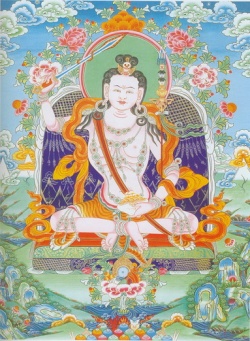A rare criticism of Buddhism
This week I watched a documentary called They Call It Myanmar: Lifting the Curtain. To start with, I highly recommend it as it was riveting, beautiful, and heartbreaking all at the same time. But that's not why I'm writing about it here. The country is predominantly Buddhist and throughout the religious part of the documentary I couldn't help but cringe, raise an eyebrow, and scratch my head all at once. I understand this post may not be super popular as Buddhism is a somewhat trendy and acceptable religion/philosophy. I don't hate all of what Buddhism has to offer. In fact, all religions have nuggets of truth here and there in spite of themselves. The Buddhist way of life is very peaceful and has some great ideas and mantras to get through tough patches. However, there's always a line to be drawn when people are fundamentalists about anything (good or bad) and I witnessed some of the bad in this documentary.
Myanmar (Burma) is an incredibly poor country. Children are rarely educated past elementary school-if they make it there at all and are often waiters in restaurants or in more extreme careers for their age. Buddhism teaches them to accept that they are poor because of some wrong doings that they did in their past lives. I take issue with this. I can appreciate making the most of a bad situation, keeping your head up, and have grace and dignity while doing so. But to be taught that this is how life is and not being encouraged of thinking of a way to change your circumstances seems unnecessarily evil. Additionally, the whole not wanting material things is a great thing about Buddhism. This world is too materialistic and we often focus on the wrong aspects of life. But when that is applied to people in poor communities it seems dangerous. I suppose it's good to not want feel bad about things that are outside your means, but it's also feeding directly into the idea that they can't change their circumstances. Sometimes wanting or lusting is good because it can bring your life to places you never dreamed of. Being in the moment, non-materialistic and accepting of one's circumstances in one thing but when it's to the point where you don't have basic health needs met or enough food I draw a line. These two philosophies going hand in hand can't help but remind me of the phrase "opium for the masses."
The Burmese people are often shown adding flowers and more gold to gold statues and at that point the filmmaker actually jokes, "should we just take these and run?" The guy he was interviewing laughs and says, "why not?" in which I couldn't help but laugh because they read my mind. Giving any kind of trinkets to statues when you can barely afford where you live is sad. While I'm not one to tell people what to think or what religious practices they should do...ugh. This is an incredibly blurry line with me. As an outsider and atheist skeptic who sees no proof whatsoever in a higher god-especially of one religion's has made up- it's hard not to shudder and want to shake these people and say "wake up!"
What really got me going though was there's this important pilgrimage they all make at some point on top of a mountain. In order to get to the top of the mountain most people travel by bus. OK, fine right? Wrong. Apparently very frequently the bus flips over and kills 60 people instantly. The filmmaker was actually highly encouraged to get off the bus because it was that dangerous. He didn't and you could see by his footage (and commentary) that they were going at a very unsafe speed to the point where he even said, "I've never heard of a bus going this fast on a mountain." He asked the obvious question, "Aren't the bus drivers worried? Why don't they get different jobs?" The answer: no because they'll know they died bringing people to worship and that's a high honor. Everyone will ascend to a higher life in their next life. In this day and age we only hear this level of crazy from Jihad Muslims. In fact, Buddhism probably gets a lot of free passes because they are never out seeking harm for others or themselves. But when you hear the above answer-while it is better than intentionally killing people- it still has an air of a potential waste of human life. Why can't they drive slower? Find safer ways to get up to the mountains? Not be motivated by unverified rewards?
You can take the good from any religion and make a case for it. But the truth of the matter is one of two things and often both: 1) very few people actually live by the good in their religion and 2) it often justifies unnecessary death and human suffering. While I try to walk a dental floss width thin line with this blog of stating my opinions, respecting the choice of others to find different truths, and not judging cultures I don't understand...this crossed every line in my humanitarian value system. Fundamentalism of any kind-even the more peaceful versions- is bad. The end.

